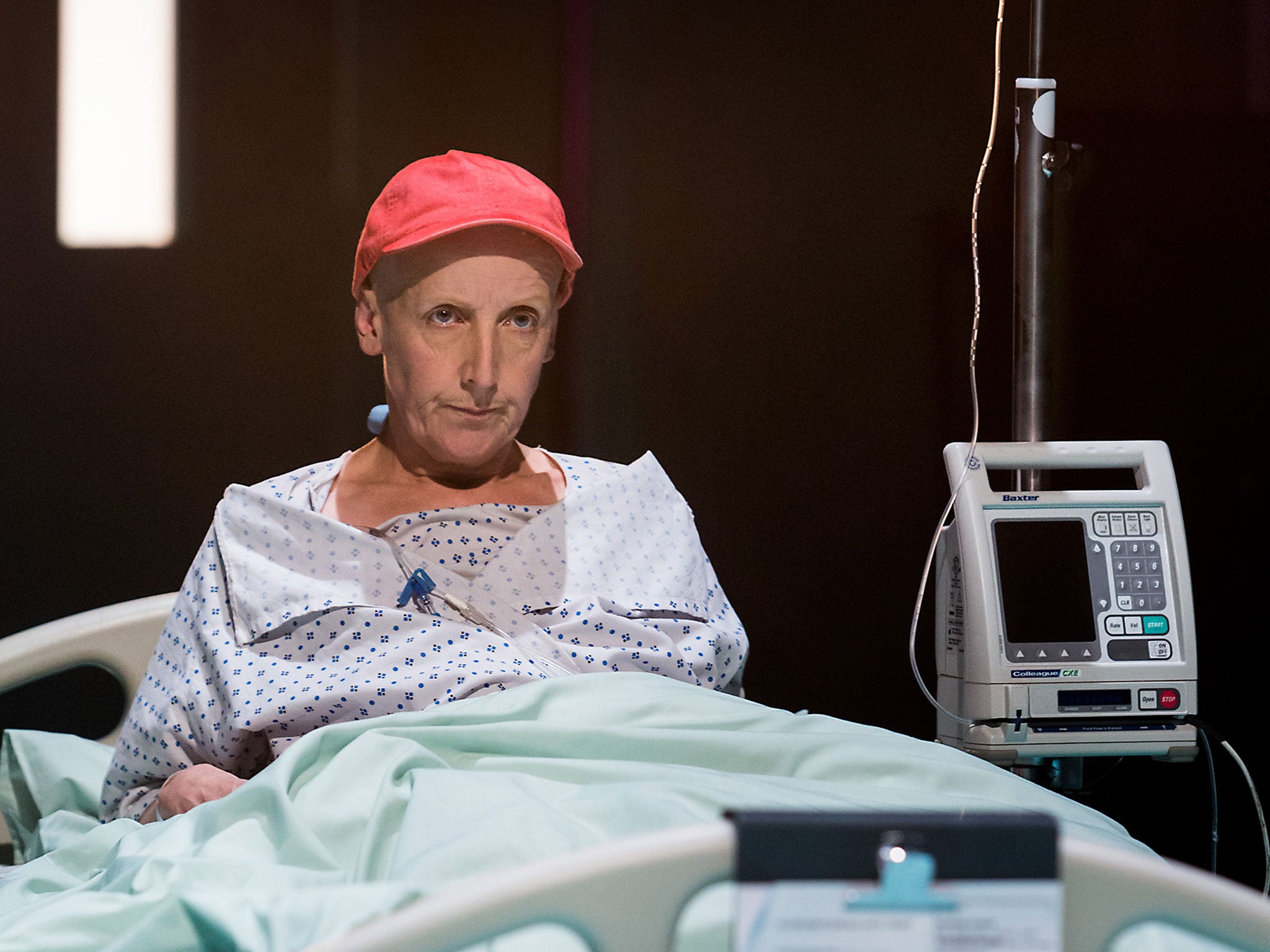Wit, Royal Exchange, Manchester, review: Julie Hesmondhalgh delivers a bravura performance
Pulitzer Prizewinning playwright Margaret Edson uses the concept of wit as did Shakespeare and his contemporaries

Your support helps us to tell the story
From reproductive rights to climate change to Big Tech, The Independent is on the ground when the story is developing. Whether it's investigating the financials of Elon Musk's pro-Trump PAC or producing our latest documentary, 'The A Word', which shines a light on the American women fighting for reproductive rights, we know how important it is to parse out the facts from the messaging.
At such a critical moment in US history, we need reporters on the ground. Your donation allows us to keep sending journalists to speak to both sides of the story.
The Independent is trusted by Americans across the entire political spectrum. And unlike many other quality news outlets, we choose not to lock Americans out of our reporting and analysis with paywalls. We believe quality journalism should be available to everyone, paid for by those who can afford it.
Your support makes all the difference.Wit has nowadays been reduced to ready quips from nimble-minded comedians on radio panel shows. That is not what it means to Pulitzer Prizewinning playwright Margaret Edson. She uses it as did Shakespeare and his contemporaries. Helen Gardner, the great scholar of the Metaphysical Poets, described wit as comparing two in congruous things in a way which is ingenious rather than just.
The two things in Edson’s play are the fastidious scholarship of an academic who specialises in what she calls the hardest poetry in English literature – the Holy Sonnets of John Donne – and the scientific precision of the oncology researchers she encounters when she is diagnosed with fourth stage cancer. That may sound grim. But it is delightfully funny – and deeply moving – in this bravura performance from Julie Hesmondhalgh as the dying academic.
Hesmondhalgh is best known as Coronation Street’s erstwhile Hayley Cropper, for 15 years the first transgender character in a British tv soap. But she is a stage actor of real power and range as she here demonstrates with a broad array of vignettes – as a wide-eyed child, precocious student, charismatic lecturer, determined patient and then frightened victim – in the character of Professor Vivian Bearing, PhD.
The doctorate is important. It is her point of parity with the medical doctors around her. The research hospital and the university are both centres of excellence and academic single-mindedness, often to the exclusion of everything else. “Hard things are what I like best,” she says after the chemotherapy doctors suggest “full dose every time”.
But she moves from a position of command to one of dependence. The journey is filled with metaphysical paradoxes between Vivian as mind and body, subject and object, teacher and learner. It is heavy-layered with laughter-provoking irony not least in her cross-purpose conversations when she talks philosophically and the doctors scientifically. En route the high-handed professor – “I used to feel sure” – comes to a deeper knowledge in bones raddled with disease. “Now is not the time for verbal swordplay or metaphysical conceit but for kindness,” she says as pain curls her into a foetal ball.
Kindness but also simplicity. The only visitor for the intimidating academic is her former professor, a character based on the great Helen Gardner. In town to visit her great-grandchild the only book she carries is the classic American children’s bedtime book The Runaway Bunny, from which she reads. The scene risks toppling into sentimentality but Hesmonhalgh’s control and versatility prevents the play from doing that. She has some beautifully deft scenes with Jenny Platt as the compassionate nurse, whom Vivian derides as “dumb” but who is rich in the emotional intelligence the sarcastic poetry professor has lacked. The bunny is saved by love, and so in the end is Vivian.
Platt is only one of a skilful ensemble of supporting actors. Tom Hodgkins is imperious as the consultant and Esh Alladi convinces as the doctor with little time for patients but impassioned by the power of cancer cells to do their murderous job. Raz Shaw’s 100 minute interval-less production is powerful though it occasionally lacks narrative signposts. But its final radiant moment is breath-taking and had the first-night audience on its feet.
Join our commenting forum
Join thought-provoking conversations, follow other Independent readers and see their replies
Comments